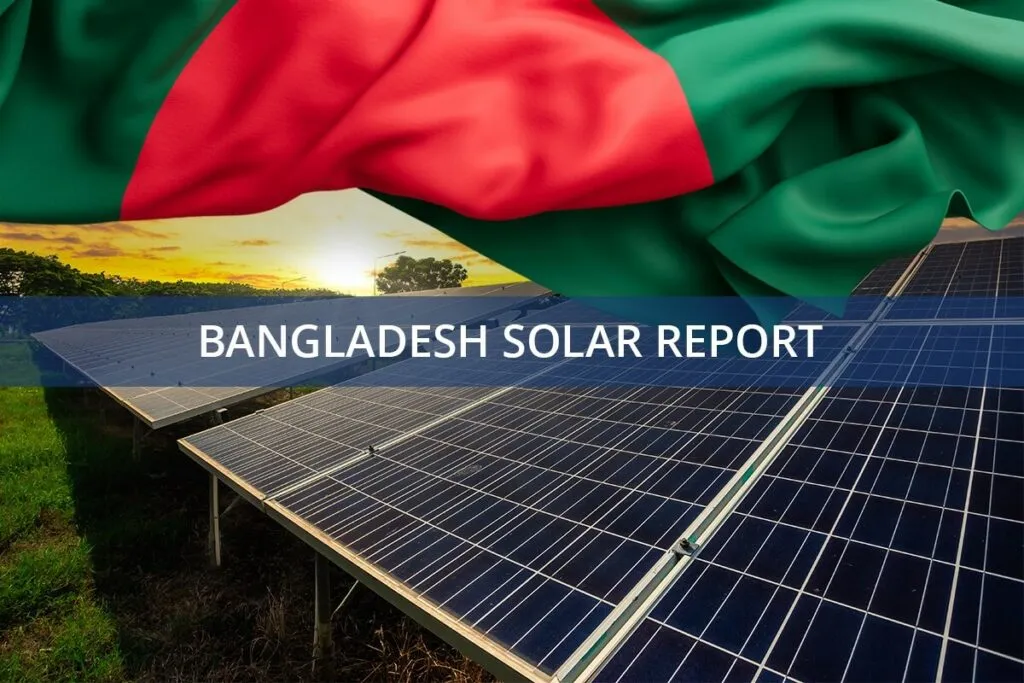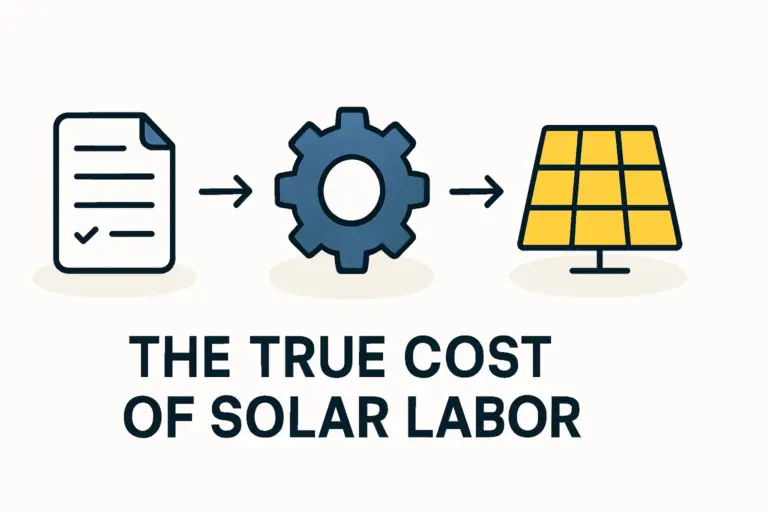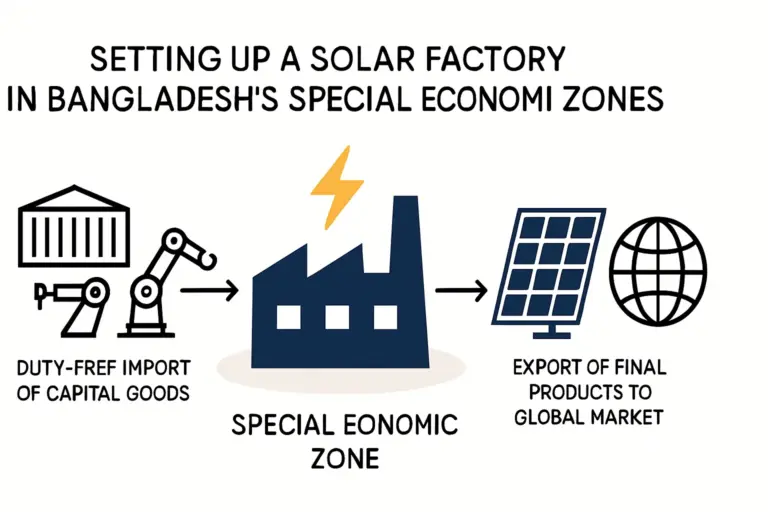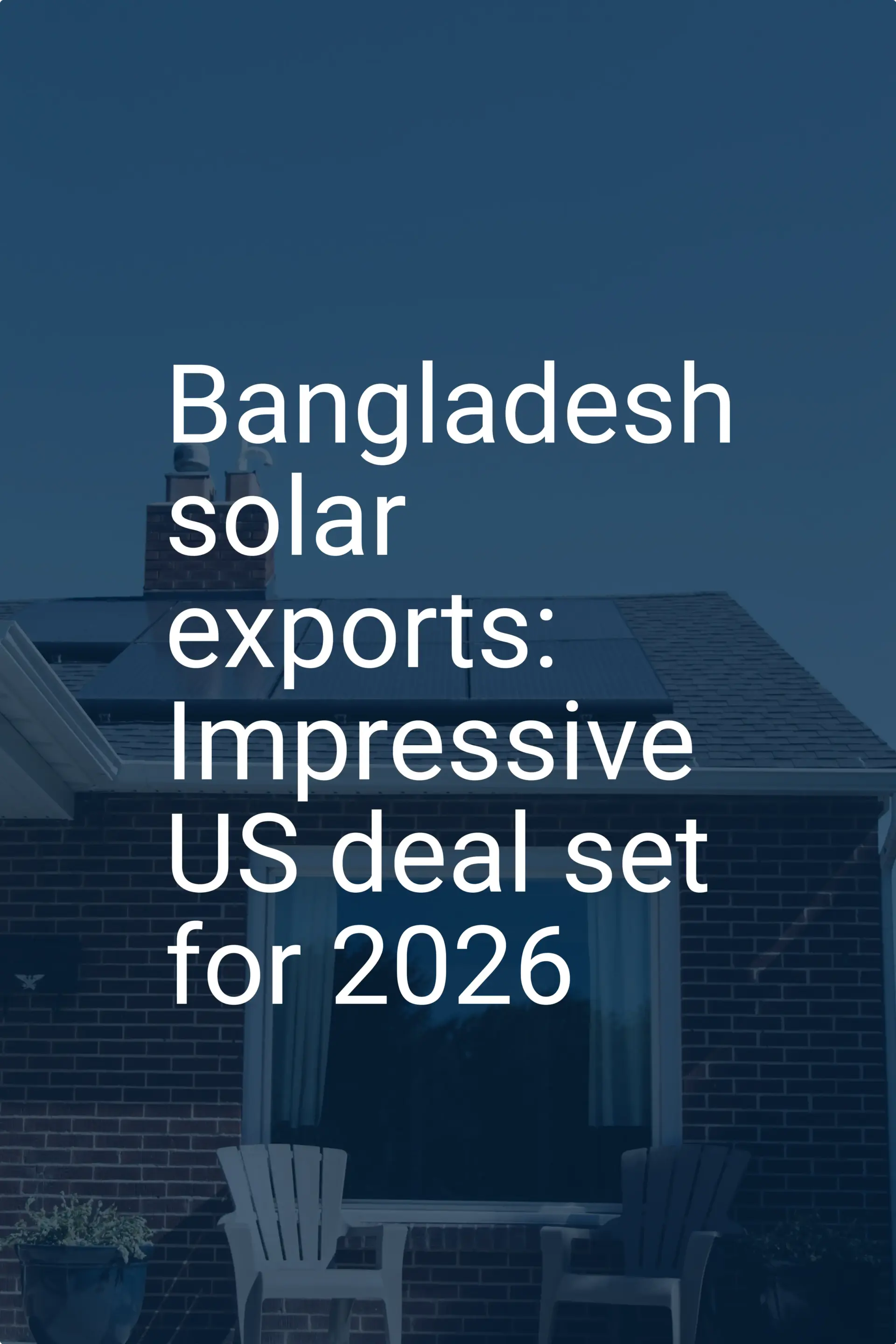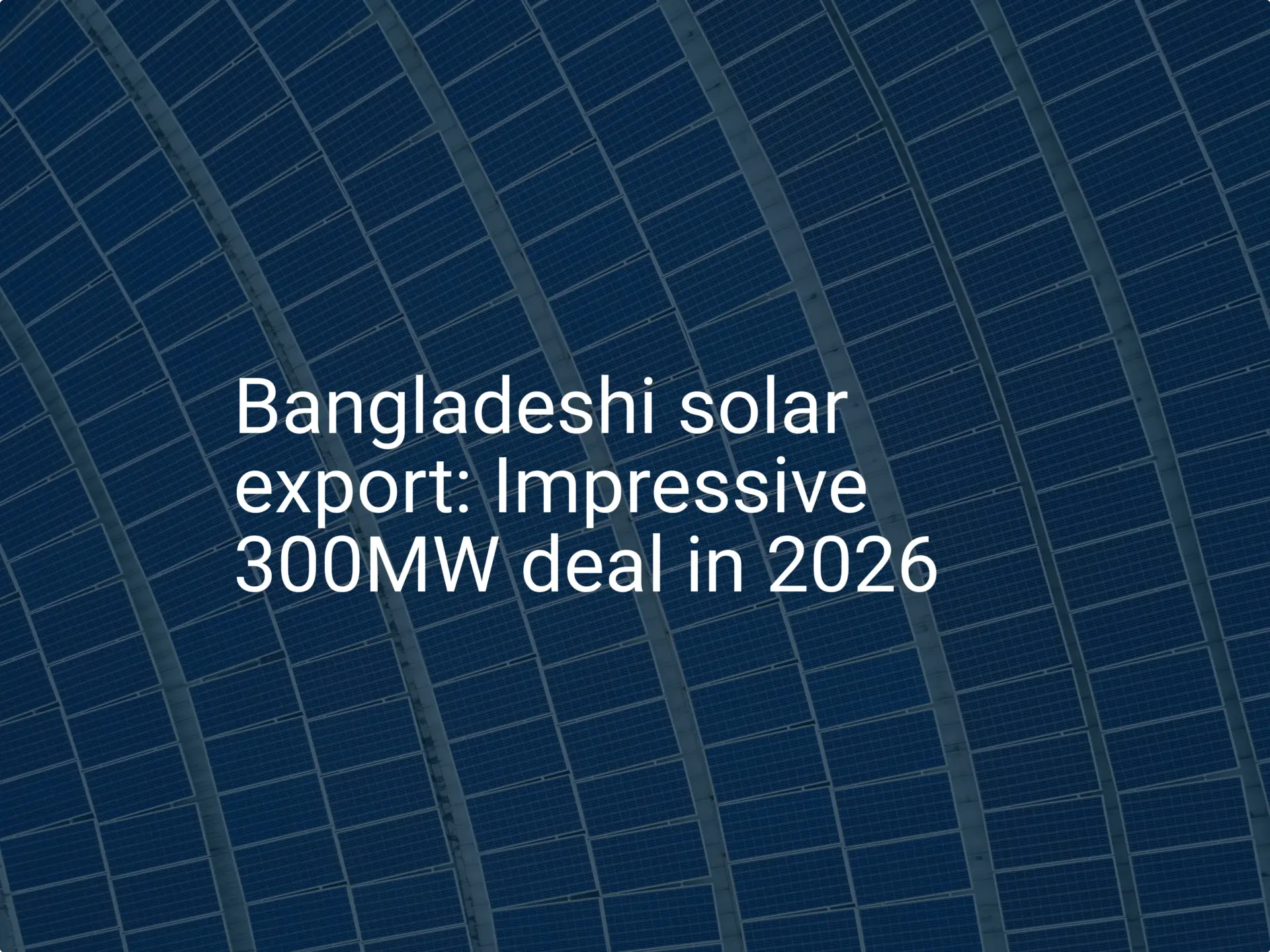An entrepreneur might have a robust business plan, secure initial funding, and identify a prime location, yet still face a formidable challenge: navigating the complex web of government permits and licenses. This challenge is particularly acute in a market like Bangladesh, where the potential for solar energy is immense but the regulatory path can seem daunting to an outsider.
The Government of Bangladesh has actively encouraged investment in renewable energy, creating a favorable environment for those looking to enter the solar module manufacturing industry. However, turning that opportunity into an operational reality requires a systematic approach to legal and regulatory compliance.
This article offers a clear, step-by-step guide to the essential permits and licenses needed to establish a solar manufacturing plant in Bangladesh. It demystifies the process, helping investors anticipate requirements, manage timelines, and avoid costly delays.
Table of Contents
The Central Role of the Bangladesh Investment Development Authority (BIDA)
For any entrepreneur, local or foreign, planning a significant investment in Bangladesh, the first and most crucial point of contact is the Bangladesh Investment Development Authority (BIDA). Established to promote and facilitate private investment, BIDA serves as a One-Stop Service (OSS) provider.
The OSS platform aims to centralize and simplify the application process for various licenses and permits. While investors still need approvals from multiple government departments, BIDA acts as the primary coordinating body, streamlining the entire procedure.
A well-prepared application submitted through the BIDA portal is the key to effective project planning and execution.
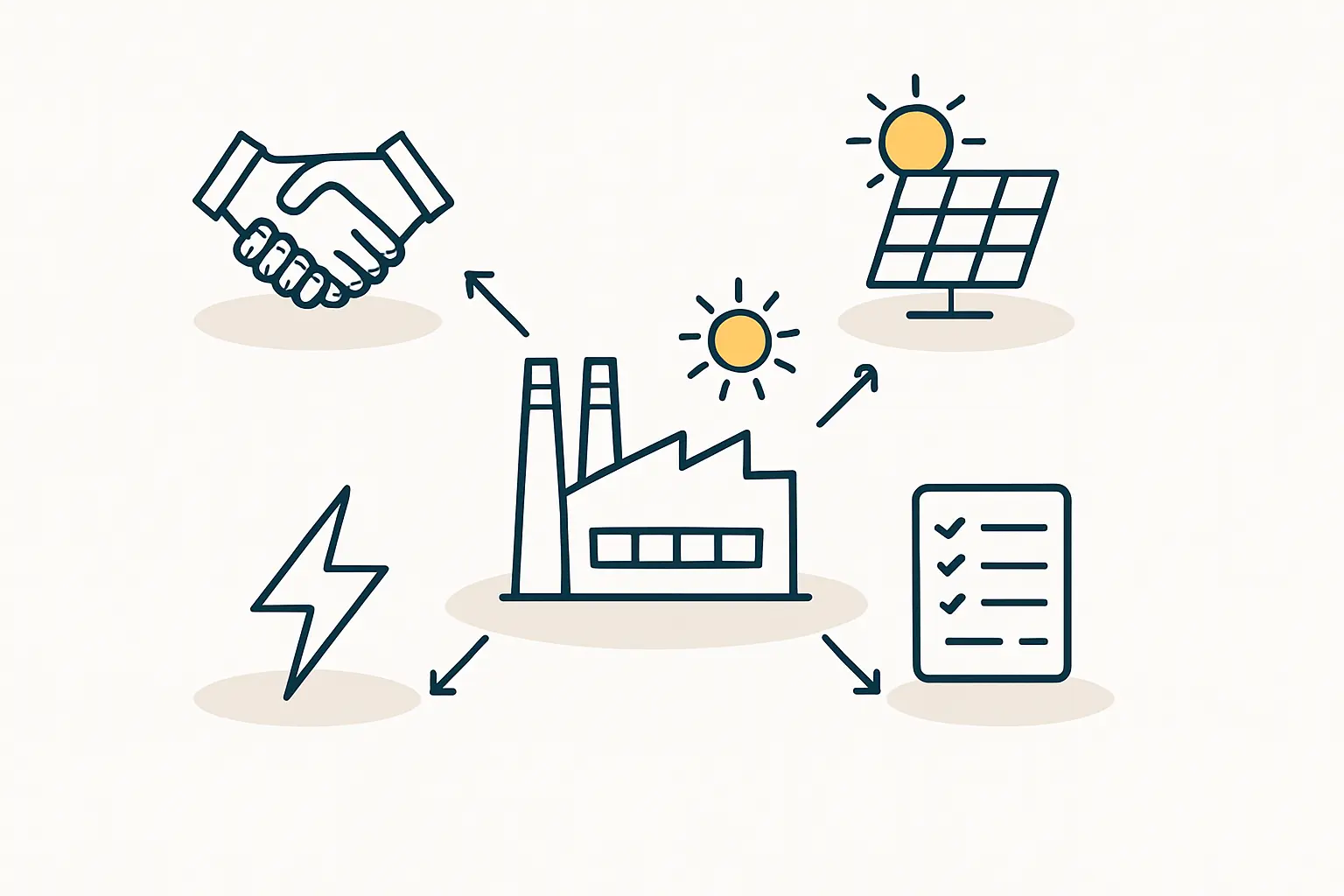
The Foundational Steps: Company and Investment Registration
Before you can seek factory-specific permits, the business entity itself must be legally established in Bangladesh.
Step 1: Company Incorporation
The first step is registering the business as a legal entity through the Registrar of Joint Stock Companies and Firms (RJSC). Most investors opt to form a Private Limited Company, which provides a formal structure for ownership, liability, and governance. The process involves securing a name clearance for the company and submitting a memorandum and articles of association.
Step 2: BIDA Registration
After company incorporation, the next crucial step is registering the investment project with BIDA. This registration formally recognizes the project and is a prerequisite for obtaining other critical licenses, work permits for foreign nationals, and government investment incentives.
Essential Operational Licenses for Any Business
Certain licenses are fundamental for operating any business in Bangladesh, regardless of the industry. These should be secured early, as they are often prerequisites for subsequent applications.
Tax Identification Number (TIN)
Issued by the National Board of Revenue (NBR), a TIN is required for all companies and their directors. It is essential for all tax-related matters, banking, and import-export activities.
VAT Registration
Also managed by the NBR, a Business Identification Number (BIN), or VAT registration, is mandatory for businesses that exceed a certain annual turnover. This registration ensures compliance with Bangladesh’s value-added tax laws.
Trade License
This license is a basic requirement to operate a business at a specific physical location. It is issued by the local government authority—such as a City Corporation, Municipality, or Union Parishad—depending on the factory’s location. The application requires proof of company incorporation and a rental agreement or evidence of land ownership.
Securing Your Supply Chain: Import and Export Permits
A solar module factory depends on a global supply chain for production equipment and raw materials, making import permits non-negotiable.
Import Registration Certificate (IRC)
The Import Registration Certificate (IRC), issued by the Chief Controller of Imports and Exports (CCIE), is essential for bringing goods into Bangladesh. The certificate is mandatory for importing the machinery needed to set up a production line, as well as components like solar cells, glass, and aluminum frames. Applying for an IRC typically requires a valid Trade License, TIN certificate, and proof of membership in a recognized Chamber of Commerce and Industry.
Factory-Specific Approvals: Building and Operational Compliance
With foundational business licenses in place, the focus shifts to permits directly related to the manufacturing facility. These approvals ensure the plant is safe, environmentally compliant, and fit for operation.
Environmental Clearance Certificate (ECC)
Issued by the Department of Environment (DoE), the ECC is one of the most critical and time-consuming permits. Manufacturing projects are classified into categories based on their potential environmental impact. A solar module assembly facility will likely be classified as “Orange-B” or “Red,” requiring a detailed environmental assessment.
For a “Red” category project, the investor must prepare and submit an Initial Environmental Examination (IEE) followed by a more comprehensive Environmental Impact Assessment (EIA). This process assesses potential impacts on air, water, and soil and outlines mitigation measures, heavily influencing site selection and overall factory design.
Factory License
The Department of Inspection for Factories and Establishments (DIFE) issues this license to confirm that the factory layout and working conditions meet national labor law standards. DIFE inspectors review the proposed layout plan to ensure a safe and healthy environment for employees, covering aspects like ventilation, lighting, sanitation, and machine safety.
Fire License
A Fire License from the Fire Service and Civil Defence (FSCD) is mandatory. Obtaining one requires submitting a detailed fire safety plan for the factory building, which must include schematics for fire detection and alarm systems, fire extinguishers, sprinkler systems, and clearly marked emergency exit routes. This plan is a critical part of the building’s specifications and must be integrated into the architectural design from the start.

A Practical Timeline and Strategic Considerations
Based on experience from J.v.G. turnkey projects, securing all necessary permits and licenses for a new factory in Bangladesh can take between six and 12 months. This timeline depends heavily on the quality and completeness of the documentation provided.
A common mistake is treating this process like a simple checklist. In reality, it’s an interconnected system where a delay in one license—such as the Trade License—can create a cascade effect, stalling applications for the IRC and Factory License.
A parallel, proactive approach guided by a clear understanding of these dependencies is essential. Many investors find that engaging a local consultant familiar with the administrative procedures of agencies like BIDA and DIFE can prevent costly errors and accelerate the timeline.
Frequently Asked Questions (FAQ)
Do I need a local partner in Bangladesh?
While 100% foreign ownership is permitted for most sectors, including solar manufacturing, having a local partner or representative is highly advisable. Their knowledge of administrative norms and language can be invaluable in navigating the bureaucracy.
What is the most challenging permit to obtain?
The Environmental Clearance Certificate (ECC) is often the most complex and time-consuming. The requirement for a detailed Environmental Impact Assessment (EIA) for “Red” category projects involves significant technical work and multiple stages of review by the Department of Environment.
Can I start building the factory while permits are pending?
It is strongly advised not to begin major construction before key approvals—particularly the ECC and DIFE’s approval of the factory layout plan—are secured. Proceeding without them can lead to work-stoppage orders, fines, or the need for expensive redesigns.
How does this process fit into the overall business plan?
The timeline and costs associated with permitting must be integrated into your initial investment analysis. Your business plan’s project timeline should build in a realistic 6- to 12-month period for regulatory approvals before production can begin.
Is the process different for a smaller solar factory versus a large one?
The fundamental steps are the same, but a project’s scale impacts the complexity of the requirements. A larger facility may face greater scrutiny during its Environmental Impact Assessment and will have more extensive requirements for its factory and fire safety plans.
Conclusion: From Regulatory Hurdles to a Launch-Ready Enterprise
The regulatory path to establishing a solar factory in Bangladesh is structured and manageable, provided it’s approached with diligence and foresight. The government’s creation of BIDA as a central facilitator signals a clear intent to support serious investors. By understanding each requirement, from company incorporation to the final factory license, an entrepreneur can turn a potential administrative burden into a predictable part of the project plan.
While understanding this landscape is the first step, the next is to build a comprehensive project strategy that integrates these regulatory milestones from day one. For those new to the industry, structured resources like the e-courses and consulting services from pvknowhow.com can offer a clear roadmap, ensuring every aspect of launching a solar factory is addressed methodically. With careful planning, the path to commissioning a successful manufacturing plant in one of Asia’s most promising solar markets is well within reach.


